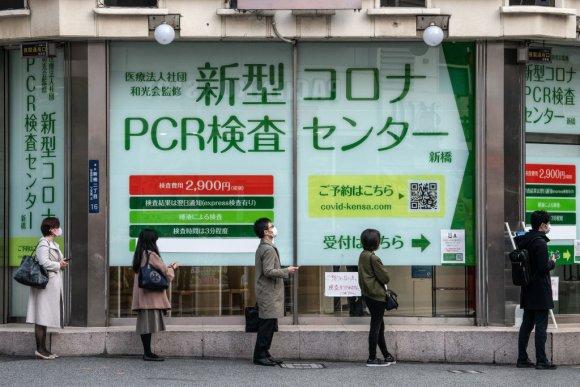Vaccination Passports Key To Reopening Asia, Airport Exec Says | アジア地域の国際線再開の鍵となる、ワクチンパスポート

アジア一帯の航空需要回復には、ワクチンパスポートが重要な役割を果たすことになる − そう話すのは、福岡国際空港株式会社のCCO(Chief Commercial Officer)・Chin Leong Teo氏だ。しかし、政府や業界はこれを追加要件としてではなく、緩和材料として運用する共通認識を持つ必要があると彼は指摘する。
最近開催された、アジア太平洋地域をテーマにしたAviation Weekのオンラインセミナーの中で、アジア諸国の政府は欧米と比較して「より慎重で保守的」であるため、「一部の渡航制限を今後も継続していくだろう」とChin Leong氏は述べた。
「ワクチンパスポートは極めて重要な役割を果たすが、異なるプラットフォームやシステムの間での一貫性と相互承認が必要だ。使い方を誤ると、ワクチンパスポートが旅行の必須条件になってしまい、それでは回復を妨げることになる。そうではなく、回復に役立てられることを切に願う」と彼は話す。
しかし、ワクチンパスポート導入の可能性があるにもかかわらず、保守的な政府は当面の間、海外渡航にPCR検査の実施を引き続き求めるだろうと同氏は考えている。
「おそらく、ワクチンパスポートはPCR検査の陰性証明と組み合わせて使用されるだろう。アジアにおいては、少なくとも短期的には到着時のPCR検査をやめる国は少ないと思われ、今後も出発前のPCR検査を要求するのではないか」とも述べた。
Chin Leong氏は、全体的に見て日本の国内線マーケットは今後数ヶ月で急速に回復すると確信しているが、国際線の回復については慎重な見方を崩さなかった。
島国である日本の地理的特徴により、国内線需要は比較的堅調に推移すると思われるが、パンデミック以前の日本の航空需要は国際線が成長の原動力だった。
「2013年から2018年にかけての国際線マーケットの年平均成長率は17%近くに達しており、旅客数も2013年に300万人少々だったのが、2018年には2倍以上の680万人に増加した。この大半は韓国・中国・香港・台湾・シンガポールなどからのインバウンド需要によってもたらされたものだ。しかし、新型コロナウィルスにより国際線需要の大部分は失われ、今や従来の1%をなんとか維持しているという状況だ」と説明した。
Aviation Week Intelligence Network (AWIN) のメンバーシップにご登録いただくと、開発プログラムやフリートの情報、会社や連絡先データベースへのアクセスが可能になり、新たなビジネスの発見やマーケット動向を把握することができます。貴社向けにカスタマイズされた製品デモをリクエスト。
Vaccination passports can play a key role in the recovery of aviation across Asia, according to Fukuoka International Airport’s chief commercial officer Chin Leong Teo, but the industry and governments must find common ground and ensure the solution is utilized as an enabler rather than an additional restriction.
Speaking as part of a recent Aviation Week webinar focusing on the Asia-Pacific market, Chin Leong said that Asian governments remain “more careful and conservative” compared to those in Europe or the U.S., which will “continue to drive some of the cross-border policies.”
“Vaccine passports will be really important, but we need consistency and a mutual recognition across the different platforms and systems,” he said. “And we really hope that they help with recovery and not hinder it, because it could be that people cannot travel without a vaccine passport.”
However, despite the potential role of vaccine passports, Chin Leong said that government conservatism means polymerase-chain-reaction (PCR) testing is likely to remain part of international travel for the foreseeable future.
“My sense is that passports will likely be combined with a good dose of PCR testing,” he said. “I think few governments in Asia will give up arrival PCR tests and many will still insist on the pre-departure PCR tests, at least for the short term.”
Overall, Chin Leong was confident that the Japanese domestic market could recover quickly in the coming months but remained cautious about the progress of international reopening.
Although Japan’s geography as an island chain means domestic demand will remain relatively robust, international flights were responsible for the majority of growth in the market prior to the pandemic.
“From 2013 to 2018 we have close to 17% compound annual growth rates in terms of international traffic, which more than doubled our international traffic from just above 3 million in 2013 to 6.8 million in 2018,” he said. “Most of this is driven by inbound tourism, traffic coming from [South] Korea, China, Hong Kong, Taiwan, Singapore etc. Now because of COVID a big part of our international traffic is gone, we are basically managing just barely 1%.”
